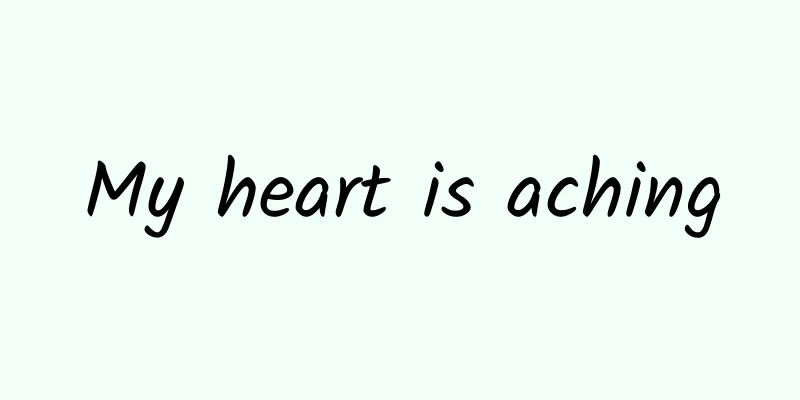What does diuresis and stranguria mean?

|
Diuretic and stranguria treatment is a medical method that uses medical means to promote the kidneys to form urine and increase urine output to improve urinary tract diseases. This method is mainly used to treat frequent urination, dry mouth and throat, and urination disorders. Therefore, patients with constant stranguria should correctly choose diuretic and stranguria treatment drugs. However, it should be noted that the drugs cannot be taken for a long time to avoid increasing the burden on the gastrointestinal tract. Everyone can understand the clinical significance of diuretic and stranguria treatment. "Diuretic and stranguria-relieving" refers to the use of certain means to affect the kidney's urine formation process, thereby increasing urine volume and improving some urinary tract diseases. "Diuresis (treatment method)", diuresis is to use some means to affect the kidney's urine formation process, thereby increasing urine output. "Tonglin" is one of the treatment methods. It refers to the method of using drugs that clear heat and dampness to clear damp heat in the lower part of the body and eliminate stones. Symptoms include frequent and painful urination, difficult urination, and even urinary retention, abdominal distension, dry mouth and throat, red tongue with yellow coating and rapid pulse. "Gonorrhea" refers to any symptom of frequent urination, urgent urination, difficulty in urination, or painful and continuous urination. It is divided into five types: "stone stranguria", "qi stranguria", "ointment stranguria", "labor stranguria" and "blood stranguria". What are the traditional Chinese medicines for diuresis and stranguria? The taste of the medicine is mostly bitter and cold, with a sweet taste. It mainly enters the bladder and kidney meridians. Bitterness can descend and discharge, coldness can clear away heat, and it goes to the lower part of the body. It is especially good at clearing away dampness and heat in the lower part of the body, and is good at promoting diuresis and relieving stranguria. It is often used to treat symptoms such as short and red urine, hematuria, stranguria with stones, and stranguria with ointment. Diuretic and stranguria-relieving drugs include Plantago seed, Talcum, Akebia, Kochia scoparia seed, Malva seed, Juncus effusus, etc. 1. Plantago Plantago seed, a traditional Chinese medicine, is the dried mature seeds of Plantago or Plantago asiatica, a plant of the Plantaginaceae family. This product is sweet and cold in nature, enters the kidney, bladder, liver, and lung meridians, and has the functions of promoting diuresis and relieving stranguria, dispelling dampness and stopping diarrhea, clearing the liver and improving eyesight, clearing away heat and resolving phlegm. It is a commonly used medicinal material. When used together with Akebia, Talcum, Dianthus superbus, etc., it can be used for those with damp-heat invading the bladder and causing dribbling and painful urination; when used together with Elsholtzia, Poria, Polyporus, etc., it can be used for diarrhea caused by summer dampness; when used together with Chrysanthemum, Cassia seed, etc., it can be used for red and painful eyes. 2. Talc Talc is a common silicate mineral that is very soft and has a slippery feel. It can promote diuresis and relieve stranguria, clear away heat and relieve summer heat, remove dampness and heal sores. It is used for hot stranguria, stranguria with stones, hot and painful urination, thirst due to summer heat and dampness, and diarrhea due to damp-heat and water; it is also used externally to treat eczema, wet sores, and prickly heat. It is used for symptoms such as difficult urination, dripping and painful urination, and can be used with products such as Plantago seed and Akebia. It is used for watery diarrhea caused by damp heat, and can be used together with Poria cocos, Coix seed, Plantago seed, etc. For summer heat symptoms, it can be used together with raw licorice, fresh patchouli, fresh perilla, etc.; for treating damp-heat chest tightness, and short and red urine, it can be used together with raw coix seed, tongcao, bamboo leaves, etc. In addition, this product can be used externally to clear away heat and absorb dampness, and is used to treat eczema, prickly heat, etc. It can be used together with gypsum, calamine, alum, etc. It is contraindicated for patients with spleen deficiency, weak qi, spermatorrhea, or those suffering from fever. Pregnant women should take with caution. What are the traditional Chinese medicines for diuresis and stranguria? 3. Akebia Akebia, a traditional Chinese medicine, is the dried vine stems of Akebia, Akebia trifoliata or Akebia thunbergii of the Akebia family. Harvest in autumn, cut the stems, remove twigs, and dry in the shade. It has the effects of diuresis, relieving stranguria, clearing the heart and eliminating restlessness, and promoting menstruation and lactation. It is used for stranguria, edema, restlessness and dark urine, mouth and tongue ulcers, amenorrhea, oligospasm, and pain caused by damp-heat. Use with caution in pregnant women. 4. Kochia scoparia Kochia scoparia, a traditional Chinese medicine, is the dried mature fruit of the Kochia scoparia plant of the Chenopodiaceae family. When the fruits are ripe in autumn, the plants are harvested, dried, the fruits are beaten and impurities are removed. Clears away heat and dampness, dispels wind and relieves itching. Used for painful urination, vaginal itching and leucorrhea, urticaria, eczema, and skin itching. Used to treat damp-heat in the bladder and difficulty urinating: used together with Akebia, Dianthus superbus, and Fructus Dendrobii, such as Kochia scoparia decoction. 5. Winter mallow seeds Winter mallow seeds, also known as sunflower seeds and sunflower seeds, are the mature seeds of winter mallow, an annual herb of the Malvaceae family. It is produced in all parts of China. This product is sweet, cold and slippery, and has the effects of clearing away heat and dampness and reducing swelling. It is mainly used to treat urinary obstruction, urinary tract infection, urinary tract stones, and postpartum milk retention. 6. Juncus effusus Juncus effusus, a traditional Chinese medicine, is the dried stem pith of the Juncus effusus plant of the Juncaceae family. Clears heart fire and promotes urination. Used for restlessness, insomnia, scanty and painful urination, and mouth and tongue ulcers. For persistent epistaxis: grind one liang of rush into powder, add one qian of cinnabar, and take two qian each time with rice drink; for clearing heat and promoting diuresis, urinary difficulty, and painful and stifling urination: use together with Akebia, Dianthus superbus, Plantago seed, etc., such as Bazheng Powder. |
<<: Functions and indications of hawthorn and lily
>>: Traditional Medicinal Foot Bath
Recommend
Tiannanxing pictures and effects
Arisaema is a traditional Chinese medicinal mater...
Can Astragalus and Cassia Seed be taken together?
Astragalus has a mild nature, but it has a good t...
What are the dangers of red spots on the penis that do not hurt or itch
There are red spots on the penis that are neither...
Is tinea versicolor contagious?
Tinea versicolor usually grows on our backs and h...
Is dizziness and fear of cold caused by air-conditioning disease? what to do?
In the hot summer, air conditioning is undoubtedl...
What is the best way to check for hyperthyroidism?
Many people have had hyperthyroidism in their dai...
Why do I always fart but never poop?
It is very embarrassing to always fart but not po...
Bronchitis cough in a three-year-old child
The air quality in many places is now very poor. ...
How to remove the granulation tissue of paronychia? This is the recommended treatment
For the granulation tissue caused by paronychia, ...
What should women do if they have accessory breasts?
For women, having accessory breasts is quite trou...
What causes chest pain?
What is chest pain? Many friends often have chest...
Can leek juice cure urticaria?
Leek juice has a certain effect in treating urtic...
How long can I take a pregnancy test after my period is delayed?
Women who are preparing for pregnancy are very co...
Does Panax notoginseng replenish blood? Functions and effects of Panax notoginseng
Panax notoginseng, also known as Panax notoginsen...
Why is celandine called Gastro
Greater celandine, the name sounds like a commonl...









